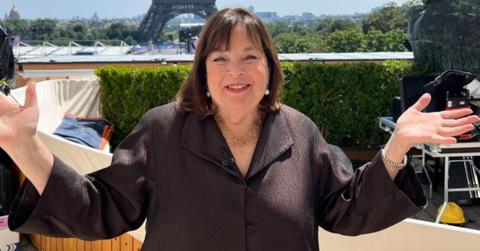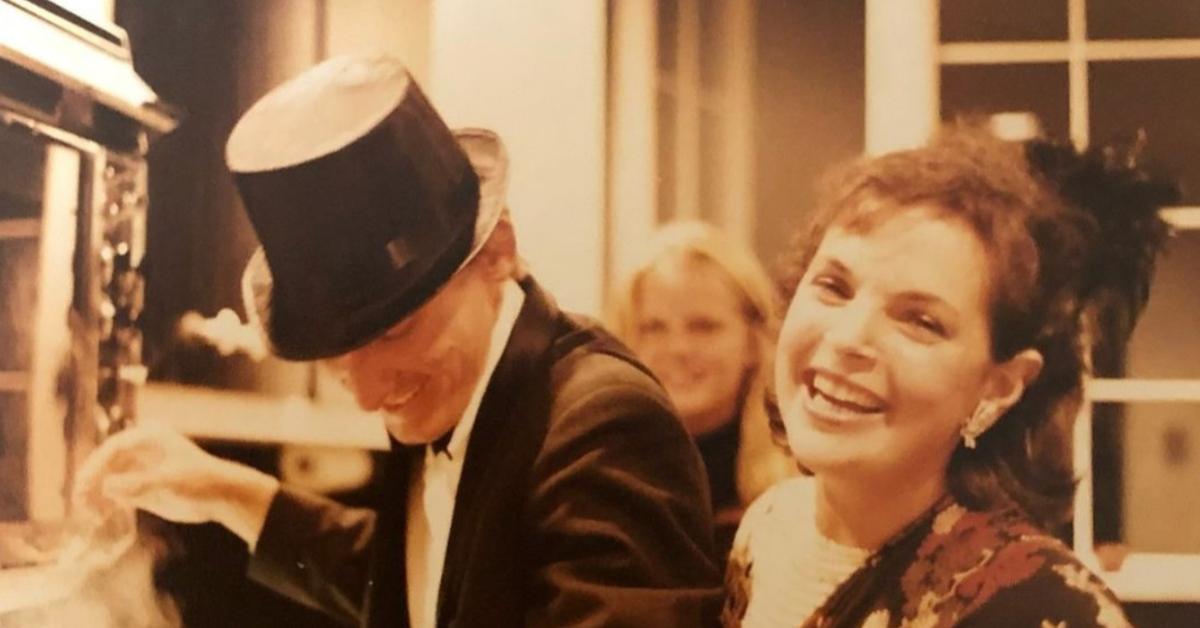"It Was a Very Cold, Lonely Existence" — Ina Garten Opens up to Hoda Kotb About Her Childhood
"I had a wonderful life. But in the house, it was a scary place," Ina recounted in her interview with Hoda Kotb.
Updated Oct. 2 2024, 9:23 a.m. ET
Food connoisseur, chef, and author Ina Garten, better known as the Barefoot Contessa, is opening up about her childhood, and you might be surprised to learn that her early years aren’t quite what you’d imagine. Given Ina’s attention to precision, flavor, and presentation in every dish she creates, you might assume she came from parents who shared a deep love and passion for food. But, in fact, it was quite the opposite.
In a conversation with Today show host Hoda Kotb to discuss her memoir, Be Ready When the Luck Happens, which was released on Oct. 1, 2024, Ina reflected on her childhood, describing it as one with “no hugs and kisses.” She explained, “It was a very cold, lonely existence.” Ina shared insights that illustrate how her upbringing was completely different from the warmth and joy she brings to her cooking today. Here's how she described it.
What was Ina Garten's childhood like?
Ina grew up with a "very scary" father and a mother who "didn't understand [her]." Her parents were from immigrant Russian Jewish families, per The New Yorker, and ran a tight ship.
During her interview with Hoda in September 2024, Ina admitted that it took her until around age 40 to realize that her upbringing was quite different from others. While she acknowledged that many people had it far worse, she spoke candidly about the lack of affection and warmth she experienced. As any adult who has faced similar circumstances can attest, this absence can manifest in the form of insecurities.
Ina described her childhood as restrictive, saying, "I wasn't allowed to think for myself, I wasn’t allowed to do things." She added that her "ideas were thwarted" and that she "was always told whatever I wanted to do wasn't a good idea." Still, Ina says her father expected nothing but the best from her, and even an A-minus on a school assignment could cause him to go "ballistic."
Ina Garten says she didn't have much of a relationship with her mother.
While Ina didn’t discredit her mother for providing the essentials, they were merely the bare necessities, with no room for joy or affection. Meals were kept incredibly simple, as she recalled: “broiled chicken [and] canned peas.” She would also be sent to school with a sardine sandwich.
She added that food was “never about flavor or feeling good or treating yourself.” Ina also explained that her mother avoided including carbohydrates in meals because she believed “they were bad for you.” Even after school, instead of enjoying a cookie, Ina was offered an apple. They say an apple a day keeps the doctor away, but who doesn’t love a good cookie every now and then? Simply put, comfort food was entirely out of the picture for Ina as a child.
While reflecting on her childhood, Ina shared that she believes her mother "was on the spectrum," adding that it felt "safer for her to be on her own and have me somewhere else." Describing her mother as a germophobe, Ina noted that her mom wasn’t particularly concerned with being near her when she was sick. Instead, Ina was given a bell to ring when she needed something, and that was the extent of the caregiving — no emotional consoling.
Ina Garten and her father.
Ina Garten said her father "had very strict views of what we should do."
As for Ina's father, she explained that it was easier to avoid him by staying in her room. While she admitted that she "had lots of opportunities" and "great friends," she couldn’t predict what would "spark [her father's] rage," which made the home a "scary" place to live.
Fortunately, Ina met Jeffrey, and they wed in 1968. After meeting him, her life changed for the better, as he helped fill the gaps left by her childhood upbringing.

